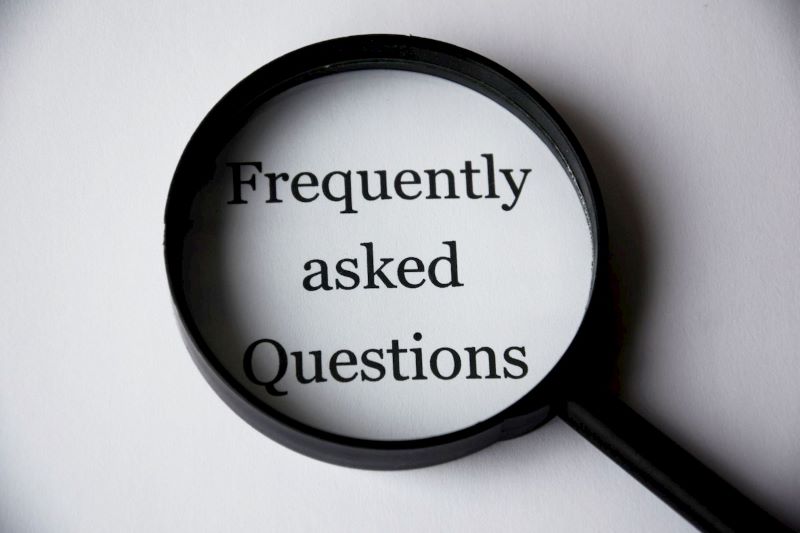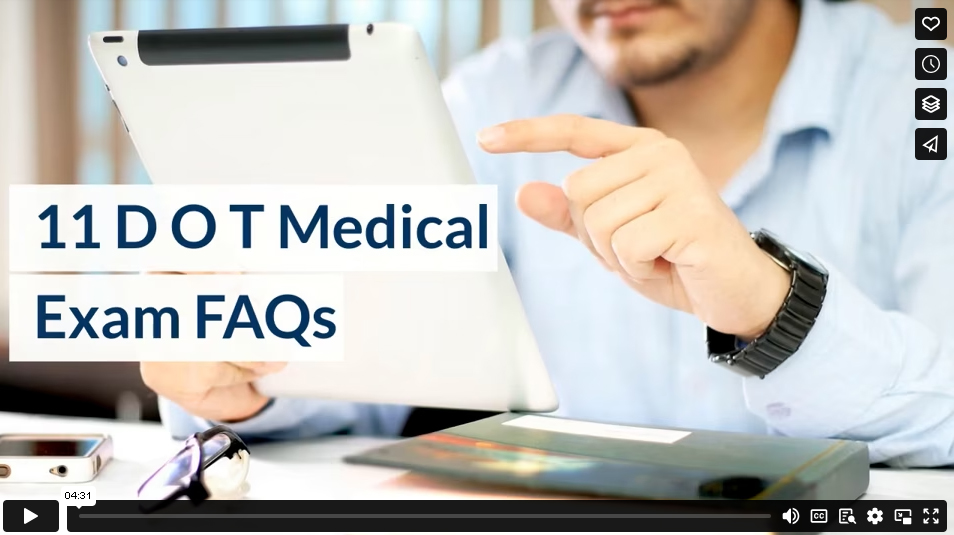In addition to your commercial driver’s license, the DOT (Department of Transportation) requires a medical examination to certify that you can operate commercial vehicles safely. The process can be overwhelming and confusing, especially with many interchangeable terms. Here are some frequently asked questions to clear up any confusion you may have about the procedure:
1. Who Needs a DOT Physical?
You will need an exam if you will:
- Get paid for operating a nine-passenger vehicle or larger
- Drive a vehicle that carries more than 15 passengers
- Transport hazardous materials that need a warning placard on your vehicle
- You are involved in transporting goods across state lines and the gross vehicle weight or gross combination weight rating or gross combination weight is greater than 10,000 pounds
2. What is a DOT Physical?
It is a health screening to determine your fitness to perform your job. A medical examiner will review your health history, medications, and ongoing treatments. They will conduct a physical exam, checking to see if you can perform the duties, or roles, of a driver. Wearing loose, comfortable clothing will be adequate for the examiner to assess you. You will not need to remove all your clothing for your exam. You will submit a urine sample, checking for protein, blood, and sugar in your urine. If they find anything that needs further diagnostics, they will have you follow-up with your physician.
3. Can My Personal Doctor Perform My Physical?
Typically, no. A certified medical examiner (CME) needs to perform your physical. They can be a doctor of medicine, doctor of osteopathy, nurse practitioner, advanced practice nurse, physician assistant, or a doctor of chiropractic. Search for a DOT certified medical examiner near me to find the closest examiners on the FMCSA National Registry.
4. Do I Need Medical Insurance For DOT Physicals?
No, insurance is not required to obtain an exam. It is rare, but some insurance companies will class it as preventative medicine. It doesn’t hurt to check with insurance for coverage if you have it.
5. How Much Does it Cost?
Prices vary depending on your company; some will cover part or all of the fees, either upfront or through reimbursement. Check with your company’s policy before booking your exam. If you pay out of pocket, exams usually range from 50 to 150 dollars, depending on your location.
6. What are the Requirements?
The goal of the physical is to determine if you are able to perform the duties of a driver without putting yourself or others at risk. The examiner will look at many aspects of your health. A few that are of particular importance include:
Vision and Hearing – You must have a minimum of 20/40 vision with or without corrective lenses. You also need to have a field of vision of at least 70 degrees. You will have each eye assessed for distance and peripheral vision and color blindness, along with each ear for hearing loss. If you require corrective lenses or hearing aids to pass your exam, you must always wear them while driving.
Blood Pressure – Your examiner will also check your blood pressure to prevent avoidable accidents or health emergencies on the job. If you have continually elevated blood pressure, it’s called the silent killer because it can lead to many unexpected and deadly health conditions. If your blood pressure is concerning to your medical examiner, there are steps you can take to improve your numbers, your health, and continue driving.
7. Are There Exceptions?
The FMCSA does grant exemptions on a case-by-case basis for physical impairments, problems with hearing or seizures that otherwise would disqualify you during a standard physical exam.
8. What Happens if I Fail?
If you fail due to a modifiable health condition, you can make the appropriate changes and recheck. The medical provider performing your physical can advise you about your specific situation. There are some guidelines to be aware of before booking your repeat exam.
9. How Often Do I Need an Exam?
If you don’t have any restrictions, an exam is good for two years. You can be cleared for a three-month or year interval if you have a medical condition requiring more close monitoring. Read more about medical conditions that can affect your certification here.
10. Can I Get a Copy of the Physical Results?
Yes, you can receive a copy of the examiner’s report form when you receive your medical certificate, also called your DOT medical card.
11. If I Lose My Card, Do I Need Another Exam?
Only if you are due for a physical. Medical examiners must keep their records for three years; you can get another copy if you lose your original card.
Once you have gone through the process, maintaining it is relatively straightforward unless you have a new medical condition pop up. Do your best to maintain your health and fitness level to prevent common medical conditions that can impact your commercial driving career. The examiners only need to verify that you are still fit to drive without jeopardizing your safety or those around you, so you shouldn’t need to worry.
Video
Infographic
The DOT physical is vital for commercial drivers, evaluating fitness for duty by assessing vision, hearing, and blood pressure. CMEs perform these exams. Insurance isn’t required, costs vary, and exemptions exist for specific conditions. Failing due to modifiable health may require reapplication. Normally, it’s valid for two years, but some need more frequent exams. Records are kept for three years, ensuring driver safety and well-being.








